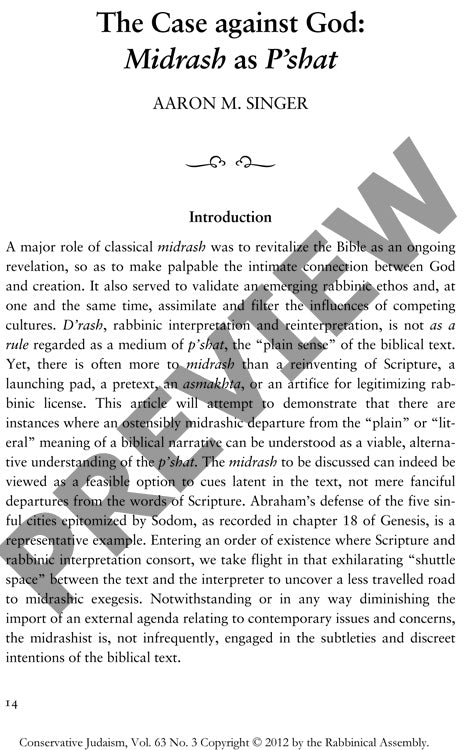The Case Against God Midrash as Pshat
Couldn't load pickup availability
When Abraham argues with God over the fate of Sodom in Genesis 18, does he act as a humble supplicant or as a bold prosecutor of divine justice? The conventional divide between midrashic interpretation and plain textual meaning (p'shat) breaks down when examining this pivotal biblical scene. Through comparative analysis of the biblical narrative and its corresponding midrash in B'reishit Rabbah 49:9, a more complex picture emerges of how rabbinic exegesis can represent a viable alternative understanding of the text's plain sense. The surface reading presents a respectful, cautious Abraham, while the midrashic interpretation reveals a challenger of divine judgment - yet both readings find support in textual cues, intertextual connections to prophetic and wisdom literature, and narrative context. By examining how the midrash fills textual gaps and ambiguities while drawing upon other biblical sources, this analysis demonstrates that midrashic interpretations can function not merely as eisegetical impositions but as legitimate exegetical explorations of implicit biblical meanings. These findings suggest a more permeable boundary between midrash and p'shat than traditionally assumed, illuminating how rabbinic hermeneutics engaged authentically with scriptural subtleties while addressing contemporary theological concerns.

More Information
-
Physical Description
-
Publication Information
Published 2012
ISBN
-
Publication Credits
Aaron Singer

